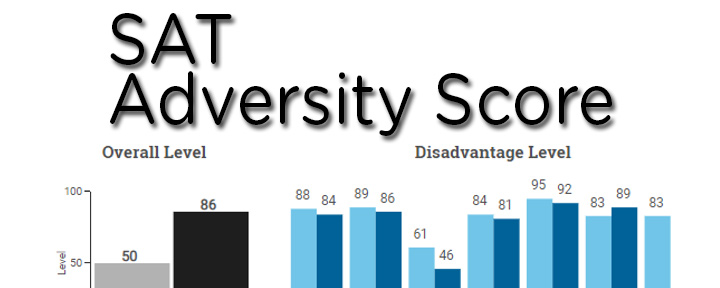
What is National Don’t Fry Day?
To help reduce rising rates of skin cancer from overexposure to the ultraviolet (UV) rays of the sun, the National Council on Skin Cancer Prevention has designated the Friday before Memorial Day as “Don’t Fry Day” to encourage sun safety awareness and to remind everyone to protect their skin while enjoying the outdoors.

Who is the National Council on Skin Cancer Prevention?
The National Council on Skin Cancer Prevention has been a trusted resource for the nation’s skin cancer prevention community since 1998. The National Council brings support, encouragement, and connection to more than 45 organizations, agencies, and associations.
Who is IMPACT Melanoma?
IMPACT Melanoma provides education, prevention, and support for the most serious form of skin cancer. We are a national non-profit organization dedicated to working to reduce the incidence of melanoma. Committed to skin cancer prevention and early detection, we provide a variety of award-winning programs which aim to raise awareness and educate the public about skin cancer, as well as support services for those struggling with the disease.

What is National Don’t Fry Day?
To help reduce rising rates of skin cancer from overexposure to the ultraviolet (UV) rays of the sun, the National Council on Skin Cancer Prevention has designated the Friday before Memorial Day as “Don’t Fry Day” to encourage sun safety awareness and to remind everyone to protect their skin while enjoying the outdoors.

Who is the National Council on Skin Cancer Prevention?
The National Council on Skin Cancer Prevention has been a trusted resource for the nation’s skin cancer prevention community since 1998. The National Council brings support, encouragement, and connection to more than 45 organizations, agencies, and associations.
Who is IMPACT Melanoma?
IMPACT Melanoma provides education, prevention, and support for the most serious form of skin cancer. We are a national non-profit organization dedicated to working to reduce the incidence of melanoma. Committed to skin cancer prevention and early detection, we provide a variety of award-winning programs which aim to raise awareness and educate the public about skin cancer, as well as support services for those struggling with the disease.

With 3 months off from the rigor of school, extracurricular activities, and that dreaded homework, plan time for your kids to discover new interests.
Just because your kids prefer computer games, that doesn’t mean that you need to stuff them into computer camps all summer. Try giving them new experiences to possibly tap a hidden passion.
Merit Academy builds summer programs around each child to encourage this type of exploration. Think: robotics, aquaponics, arduino, stained glass, environmental science, and more! We also have unique academic programs that focus on writing essays, reading comprehension, and math foundation building.
Our one-on-one classes are scheduled around your other summer plans and vacations. It’s time to find that niche class to spark your child’s interest in something new!
Learn more about specific classes and the many ways we can make your child’s summer the turning point in their academic careers!

Finally, a community college is helping freshmen pick out course schedules based on their majors to encourage them to enroll fulltime and graduate quicker. Consumnes River College, a California community college, is doing what high schools do for their students: lay out a plan to make sure students know what courses they need to take to graduate. If all colleges laid out a 4-year plan with their students during freshman orientation, students would be more engaged, take a full load, and graduate on time.
Many students who attend community colleges take 12 credits or less each semester when 15 credits is considered full time. When students take 15 credits per semester, they can transfer to a 4-year college in 2 years with the required 60-credits. Otherwise, students who take 12 credits per term only have 48 credits after 2 years, making them have to continue at the community college for another semester. That’s really wasting a full year because most colleges don’t accept spring transfers.
I find that when students choose courses every semester by looking at what’s offered and referring to their general ed and major requirements, they accidentally take classes that they don’t need because they were satisfied by courses they’ve already taken or will need to take as a prerequisite in the future. That’s wasting Mom and Dad’s money and their precious time.
Now that college-bound students are heading off to start college in August or September, this is the ideal time to lay out their 4-year plans. By organizing both general ed and major courses (lower and upper division) before starting college, they’ll understand how to take advantage of the many opportunities available to them once they arrive. It’ll ensure the best ROI (return on investment) for Mom and Dad. Merit helps students choose majors, lay out 4-year plans, and even include study abroad, internships, and research.

I still cover my eyes when there’s blood or violence on TV, and I walk out of the room when the music escalates because I can’t handle psychological thrillers. So I can only watch a handful of shows, and two of them are The Big Bang Theory and Young Sheldon. That’s why I’m disappointed that The Big Bang Theory has ended after 12 seasons. I loved watching quirky young physicists – and 2 of them women — interact in a brilliant comedy show.
The cast and crew have raised $4 million for the Big Bang Theory Scholarship Endowment for science students at UCLA. Five admitted students studying STEM at UCLA will be selected every year to receive need-based financial to bridge the gap between regular financial aid and the cost of attendance.
Mayim Bialik, actress who portrays Amy Fowler, earned her PhD in neuroscience from UCLA, and David Saltzberg, the program’s science consultant, is a UCLA professor of physics and astronomy. Love to see philanthropists support the sciences!
[Source]

Earlier this week, Susan was interviewed by Brad Kava for KSQD’s “Talk of the Bay” program. The hour-long interview covers a lot of ground, including how Susan started Merit Academy, how she was able to get free childcare for her kids, the books she’s written to help other parents, and even the shoe carousel and furniture she designed and made!
Listen here: https://americanmotherscalifornia.com/local-radio-interview-with-susan/
or listen to the May 13th show on KSQD here: https://www.radiofreeamerica.com/show/talk-of-the-bay-k-squid

Wondering if the new SAT adversity score will hurt or improve your college admissions decisions? You’re not alone. My clients are flooding my inbox with questions. In addition to math, reading, writing, and essay scores, the College Board will include an “adversity score.” Their goal is to provide a more comprehensive snapshot of the applicant’s background. The SAT and ACT have received much criticism about scores reflecting rich parents’ ability to pay for SAT/ACT tutoring, private high school tuition, and elite summer camps, which result in higher scores instead of students’ basic knowledge and academic skills without these special opportunities. Here are the facts:
The Adversity Score considers the following:
High School:
1. Average senior class size
2. Percentage of students eligible for free and reduced lunches
3. AP course availability
4. Scores on AP exams
Home and Neighborhood:
1. Home environment (single parent?)
2. Neighborhood (safety and opportunities)
3. Crime level
4. Family income
5. Family stability
6. Poverty
7. Ethnicity is NOT considered
The adversity score considers 15 factors and is calculated on a 1-100 point system; 50 being the average disadvantage level and 100 being the worst. The College Board will calculate the score and it will be listed on each student’s SAT test along with the subject area scores. Last year, 50 colleges used the adversity scores in their decisions for the 2019-2020 class. This year, 150 colleges will use them. These scores are not available for students or families to see, just for college admissions committees.

Yale was one of the first colleges to use the adversity score in their admissions decision, which doubled the number of low-income students and first-generation college students to about 20% this year. That will improve the diversity of their freshman class. The adversity score is designed to give low-income and disadvantaged students a leg up on privileged, wealthy students.
The information gathered from the adversity score isn’t new news. High schools provide colleges with a School Profile that lists many of the details the adversity score includes such as demographics, number of AP and honors courses, and average GPAs. College applications require parent employment, income, and college background. The adversity score is just ramping up the information about neighborhoods and free-lunch programs that colleges might not have.
With the college admissions scandals and affirmative action lawsuits, this is just another attempt to level the playing field for all students. After all, do we really want higher education to consist of just the wealthy?
[Source 1]
[Source 2]
[Source 3]

EXPELLED! Students whose parents bribed or cheated their way to acceptance at prestigious colleges like Georgetown and University of Southern California should not be allowed to graduate with degrees from these institutions. That’s right. Allowing these students to continue college or reap the same benefits that other students who got in on their own merit only minimizes the depth of the college admissions scandal.
When students sign their college applications, they are swearing that all contents in the application – including their essays, SAT/ACT scores, transcripts, and list of activities — are true to the best of their knowledge. This is the same for job applicants. When employees get caught lying on job applications or resumes, the employer can fire them and the employee may lose rights to severance pay and unemployment benefits. So why would it be any different for a college applicant?
Adam Semprevivo, a junior at Georgetown, has the gall to sue Georgetown for being expelled. His father paid $400,000 in bribes to have him admitted as a recruit for the university’s tennis team, even though he doesn’t play tennis. But Semprevino wrote essays about his tennis extracurricular activities and submitted them with his college applications. Now he claims that the essays were submitted without his knowledge. Really? The corruption and lies just keep getting deeper and deeper.
What’s worse, Semprevino is blaming Georgetown for not catching his lies! Instead of apologizing for being in on the fraud, Semprevino claims that Georgetown should have found the discrepancy between the essay and his application/transcript. Now he’s really showing his true colors: lying and cheating are okay as long as you don’t get caught.
Thanks to the college admissions scandal, colleges are going to start checking references to verify student claims on their applications, essays, and letters of recommendation. That’s why I’m advocating for students doing independent projects to stand out among their peers. These projects demonstrate their integrity, passion, and leadership. Check out how to do a project with my book Beat the College Admissions Game with ProjectMerit.
[Source]

Did you know that human trafficking happens right in your community? I attended a Coalition to End Human Trafficking event to learn more about how to prevent our children and young adults from being trafficked. Here are some red flags:
- Lack of control of their finances, speaking for themselves
- Has few or no personal possessions
- Appears malnourished and/or physically abused
- Is fearful, anxious, paranoid, and/or depressed
- Avoids eye contact
Contact:
 888-373-7888
888-373-7888
or
text 233733 (BeFree)

Next to the architecture and food on college campuses, the quality of the dormitories are what prospective students consider when making their decisions about which colleges to apply to. Sigh. I send students on college tours during their junior and senior years of high school so they can check out college life while we narrow down their lists of colleges. When they return from these tours, they all talk about the beautiful campuses, friendly tour guides, design of dorms and bathrooms, delicious food, and amenities.
Seriously? When parents spend $100K to almost $300K for an undergraduate education, I would think they would be meeting with the academic deans to discuss general education courses, major requirements, electives, and policies. After all, isn’t that what they hope their children will be focusing on while away for 4 years? But, surprisingly, parents assume that all programs are about the same and rarely ask about majors offered, professors, or anything related to the academic experience.
I do agree that the on-campus college experience is important. It gives students the opportunity to explore relationships with a wide variety of people who come from different states and countries, different socio-economic backgrounds, and different religious and cultural histories. Having upscale dining halls that serve steak (Harvey Mudd is famous for this) and lobster (yes, Washington University is known for this), certainly adds bonus points and gorgeous architecture (Harvard, Yale, and Princeton) adds prestige for parents as well as students.
I’d prefer that colleges focus on building new departments and labs, recruiting excellent professors, and updating libraries and resources rather than superficial impressions like architecture, dining halls, and dorms. Besides, don’t we want our kids to spend more time learning than partying and sleeping in?
[Source]

Even though you may feel like you’re stuck with the college that you accepted on May 1st, you still have options. If you’re one of the students who didn’t get into your #1 college, or even any colleges on your list, and you’ve conceded to head off to a college that you are not interested in attending, you can apply to other colleges and start this fall. One of the biggest misconceptions about the May 1st deadline to choose your future college is that this is only for selective colleges.
Remember, there are over 4,000 colleges here in the United States and only a tiny fraction of them are super selective. There are over 400 colleges and universities that have openings, financial aid, and other perks available now.
Check out this website to see which colleges are accepting freshmen and transfer students at public and private universities: https://www.nacacnet.org/news–publications/Research/CollegeOpenings/
If you’re still set on a specific college, consider taking a gap year to beef up your portfolio. Be careful about taking college classes during this year because some colleges will require that once you take college courses after high school graduation, you’ll need to apply as a transfer student.
You can also start at a community college and transfer into your dream college. This is a great path to take if your high school grades were less than stellar. Most colleges will consider only coursework that you have taken at the community college, which gives you a new beginning with a clean slate!
If you’re not feeling comfortable with the college you’ve selected, reevaluate your options. We can help you make the right choice. Call 831.462.5655.










